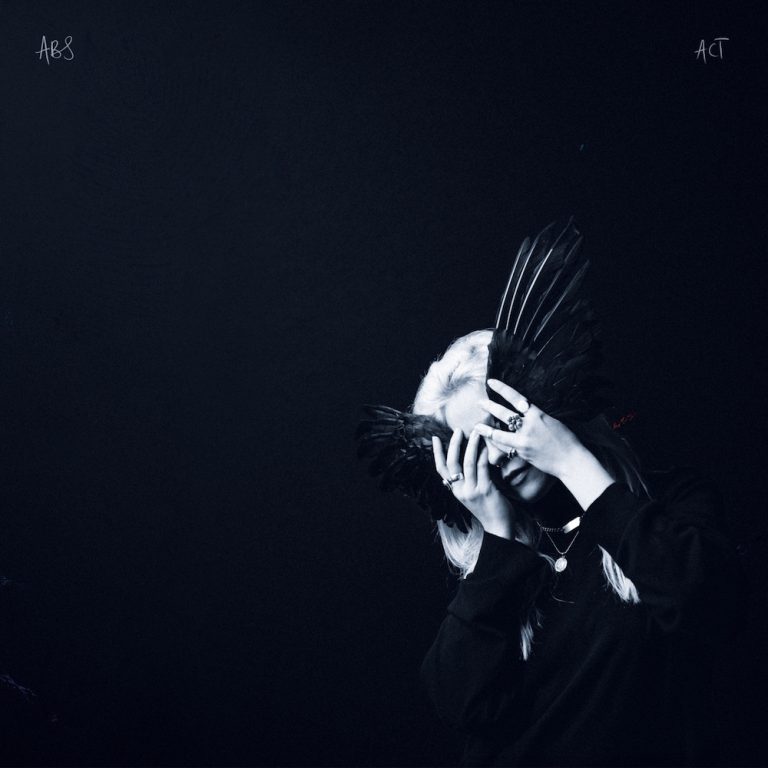A recurring motif of A Common Turn, the debut album from British singer-songwriter Anna B Savage, is birds. They occur in the lyrics and song titles like “Corncrakes” and “A Common Tern” (which informs the album title), and have appeared in the press photos in the build up to the album’s release. It seems that Savage feels an affinity for the avian creatures, and in fact her music could be said to imitate their grace, as the singer’s voice has the ability to duck, glide, dive and ascend with the same fluidity as the winged. Savage’s songs are more stark than corncrakes or terns though; their plumage is a deep black akin to that of A Common Turn’s cover art – these songs are ravenous, and are unafraid of delving into the grisly stuff.
Having a voice as rich and immediately captivating as Savage does is one thing, but knowing how to deploy it is where she excels. Songs about the trials of sexual relationships are what many will likely come into this album expecting – Savage did offer a pre-order bundle of A Common Turn that came with a pocket vibrator, after all – and there are plenty of those, to be sure. “BedStuy” relays a day of weary love in New York, while the tension of spending a night of confused “mutual affection” with a former lover is delivered with painterly detail on “Baby Grand”.
She renders her heartbreaking realisation of a relationship coming to its conclusion in true-life detail on “A Common Tern”, as she recounts a conversation: “’What do you love about me?’ I asked him / He paused, and then said ‘I love how much you love me’ / I shuddered…” Your ears will surely prick up at the following “Chelsea Hotel #3”, which opens with the line “He’s giving me head on my unmade bed” and continues on to discuss her belated sexual awakening with frank openness.
However, A Common Turn is at its best when Savage is purely focused on herself, plumbing the depths of her psyche and existential angst. Chief among these is “Dead Pursuits”, where the dexterity of her voice is at its most biting, turning the mundane “I’m dying my hair and cutting out sugar” into spine-tingling admissions of a mind on the edge of nervous breakdown. In moments like this, Savage barely needs any instrumentation to underline her voice, but the way acoustic, synth and backing vocals rise and fall in the mix perfectly outline the vicissitudes of her erratic mental state. In combination, the results are astounding, and when she reaches the point of complete collapse, begging to know “is anyone listening?” you want for all the life of you to put a hand on her shoulder and assure her we are.
“Two” is another song in this vein, as Savage candidly puts her depressive thoughts and behaviours up front and centre. A slovenly and lumpen guitar perfectly accompanies her assertions that she’ll “never amount to anything” and that she’s skipping showers. This beautifully bruised tableau is interrupted by percolating electronics that uplift the song to a point where she’s finding inner strength and admitting “But, I want to make you proud / find some feet, stand some ground,” before it lapses back into its original heaviness – depression can’t be escaped that easily, but the melancholy of Savage’s songwriting certainly makes it sound gorgeous.
Savage has cited Nick Drake and Ella Fitzgerald as key influences on her songwriting, and both are in full display on A Common Turn. Aside from Pink Moon getting mentioned specifically as the album she turns to on a night of insomnia in “Hotel”, Drake’s quietly detailed songwriting is a clear forebear to Savage’s own carefully-traced missives. Fitzgerald’s influence is all in the vocal; while their voices might not be too similar, the way Savage can shift fluidly through octaves and be just as powerful when singing forcefully or vulnerably is certainly indebted to a youth spent listening to the Queen of Jazz.
But, while these influences are certainly present, A Common Turn is undeniably and entirely Savage’s own; these are her trials and confessions, and it’s a stroke of great bravery and generosity for her to have released them in this enrapturing manner. “I don’t feel things as keenly as I used to,” she laments on “Corncrakes”, but for once it feels like she’s over-egging it; practically every note, word and sigh on the album brings with it a sharpness of feeling that transmits itself graphically to the listener – and there can be no doubt that Savage still feels it all and more, too.

